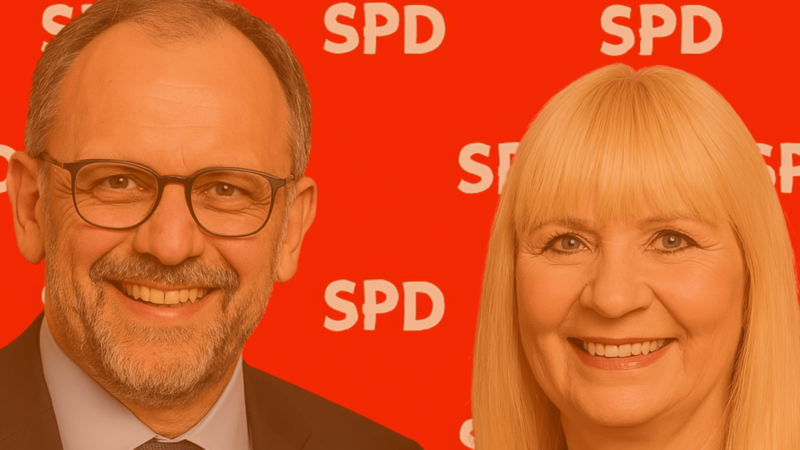The Labour Party is in power in the UK, after 14 years of Conservative rule that stripped the country of its public services while scapegoating migrants for falling living standards. For many it’s a reason to hope that things will now get better.
Those of us interested in migrants’ rights are hardly immune to this temptation. Compared to the obsessive cruelty shown by the Tory governments of the past few years, we might believe a Labour government would show more compassion and sensibility in this area.
But the initial signs are mixed. On the one hand, Keir Starmer has promised to scrap the Rwanda plan and reduce the asylum backlog that has trapped over 80,000 people in limbo. On the other, the government has pledged to establish a new ‘counter terrorism-style’ Border Security Command for coordinating cross-border policing; reintroduce fast-track deportations supported by ‘a new returns and enforcement unit’; and seek new return agreements with third countries to facilitate that work.
In a sign of things to come, just weeks after the election Yvette Cooper, the home secretary, directed thousands of staff from the now-dead Rwanda plan to support increased immigration raids on nail bars and carwashes. Labour has also committed to continuing the Conservatives’ expansion of detention, pushing ahead with the reopening of the Haslar and Campsfield facilities despite widespread local and national opposition.
The UK practices indefinite detention for migrants. Asylum seekers can spend months or even years locked up without an end date, despite not facing criminal charges or posing a danger to society. Campaigners have long pushed back against this, but UK policymakers have refused to institute time limits – despite all other European countries doing so.
With the change of government, anti-detention activists are once again gearing up to push for changes to this system. But before they go to Westminster, it would benefit them to first look across the Atlantic.
When the US transitioned from the Trump to the Biden administration after the 2020 election, it brought similar relief and optimism to progressive campaigners. But while there were some wins early on, in many ways it actually set the anti-detention movement back a step or two. If that isn’t to happen here as well, those advocating for more humane treatment of migrants in the UK must learn how to avoid the same pitfalls.
‘Defund Hate’: a cautionary tale
The Biden administration’s approach to immigration on the heels of Trump is a cautionary tale. It warns us that, regardless of who is in power, we must keep our eyes on the ball and officeholders’ feet to fire. Backing off and giving the benefit of the doubt to supposedly more progressive administrations only leads to disappointment, if not disaster.
Launched shortly after Trump assumed office in 2017, Defund Hate was a coalition of 74 organisations including advocacy groups, directly-impacted communities, faith-based groups, civil rights and migrant justice campaigners.
They formed in response to Trump’s programme of hostility that supercharged a decades-long U.S. policy of deterrence – which came to include the ‘Muslim ban’, the ‘asylum ban’, widespread child detention and family separation at the border – and connected across broad issues to form one demand: significant cuts in funding to ICE and CBP.
The coalition achieved some significant wins. Combining legislative lobbying in Congress, grassroots mobilising, and communications work, Defund Hate blocked $15 billion in requested federal funding from going to immigration enforcement. The connections fostered between organisations with diverse political perspectives and agendas was another important achievement of the coalition, helping to mainstream abolitionist goals and build a wider base for the movement.
In 2021, Biden entered the White House. His administration promised to overturn Trump-era policies, institute a ‘fair and humane’ immigration system, and reduce the use of immigration detention.
But that didn’t really happen. While he stopped some of the Trump administration’s most egregious policies, ended contracts for a handful of detention centres, and established some very limited migration pathways, overall the Biden administration has taken a pretty hostile approach. It increased immigration enforcement at the border, expanded the detention estate, and used an executive order to effectively ban the right to asylum for people arriving at the US border.
Along with these polices came ever-increasing budgets for immigration enforcement agencies, the very target of the Defund Hate campaign from the beginning.
All this is reason for Defund Hate to still be going strong. Yet it isn’t. Once Biden entered office it lost its momentum and is no longer the force it once was. The question is, why?
Lessons: the challenge of ‘progressive’ governments
The experience of Defund Hate provides some useful lessons for anti-detention progressives facing a period of transition from a hard right government to a supposedly more liberal regime. For us, these are the three major takeaways.
Coalitions for progressive change need more than a shared enemy
The Defund Hate coalition was initially so successful because the overt racism and hate of the Trump administration had a mobilising effect on a wide range of advocates in the immigrant rights sector. The extreme nature of his policies also made people, including elected officials and advocacy organizations, more receptive to clear abolitionist demands.
However, the coalition and strategy were both ultimately defensive. They attempted to hold back the wave of border violence that Trump unleashed.
What was missing was a clear vision of a positive goal around which to organise and build towards
Faced with an apparently more liberal Biden administration, which appeared willing to engage with and pursue progressive policies, elected officials closed rank while some organisations optimistically saw opportunities to pursue other specific and seemingly more attainable goals (e.g. legalisation, better detention conditions, universal representation, centre closures, or border liberalisations).
Without a central villain to rally against or the clarity of a single demand, the coalition was no longer as effective as it had once been. What was missing was a clear vision of a positive goal around which to organise and build towards.
Look behind the progressive headlines
Biden’s policy reversal reflects those of previous Democratic administrations, which promised reforms while quietly broadening and deepening the carceral infrastructure of detention and border security. Indeed, the latter was often framed as a necessary condition for the former, as it would ensure a ‘firm but fair’ immigration system.
Just as the Obama administration laid the foundations for Trump, Biden normalised Trumpism while offering crumbs to progressives like parole for undocumented spouses of US citizens – announced weeks after the June 2024 anti-asylum executive order.
Too often, organisations make the strategic mistake of accepting expansions in border security for the sake of minor progress in their specific area of focus. This is self-defeating. It takes us further away from a world without detention. Acknowledging the continuities in border and detention policies between the ruling parties should encourage us to look beyond the election cycle in our organising.
Progressive change requires deep grassroots movement organising
These recognitions lead us to conclude that detention abolitionist movements everywhere need to engage in more grassroots movement organising in our communities.
The harms of detention radiate outward from the centres themselves. They impact more than the people directly detained. Families are put at risk of eviction because they have lost a source of income. Communities of colour are disproportionately subjected to increased police and immigration enforcement. And local areas become dependent on poor quality jobs in violent carceral institutions.
What is required is the articulation of clear abolitionist demands that link these harms to the causes of insecurity in people’s lives: scarcity, precarity, poor health, and unemployment etc. The message is simple. We’re not just against detention because of the injustice it does to the detained. We’re against detention because of all the harms it perpetrates on marginalised communities and society as a whole.
The Defund Hate campaign has also taught us that a focus on money helps people to connect the dots between the insecurity they personally experience and the economic inequality perpetuated by the current system of government. Highlighting that it is a political choice to spend taxpayer money on detention at home and militarism abroad, rather than investing that same money in making life more liveable for everyone in the community, can help create solidarity across divides of citizen/noncitizen.
Abolitionist movement building requires centring decarceration within a wider vision of a more free and equal society for all. Such a vision poses a powerful challenge to the vested interests, entrenched policy ideas, and limited political imaginations of the elites who are driving the continued expansion of detention.
Just another government
The new Labour government will thankfully do away with the Rwanda plan, but it remains committed to a project of deterrence, criminalisation, and enforcement against migrants.
As such, we shouldn’t be overly optimistic about what this change of government will bring. Recent calls in the UK for more ‘safe and legal routes’, without a simultaneous call for dismantling violent border policing and punitive detention policies, risk normalising and entrenching the latter. We can see that coming and nobody on the side of migrants’ rights should turn a blind eye to it.
Decarceration is part of building a more equal and just society for all. Labour has yet to acknowledge that, so there is no reason to trust they will simply do it better by default. Nor will they necessarily be more responsive to progressive pressure. The anti-detention movement should keep this in mind as we plan for the years ahead. We still have much work to do.
This article was written by Thom Tyerman and Setareh Ghandehari for OpenDemocracy and has been republished under a Creative Commons license
Do you want to be informed of DiEM25's actions? Sign up here















